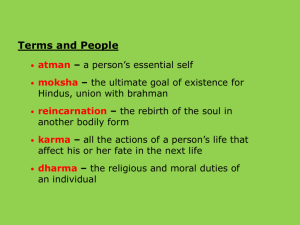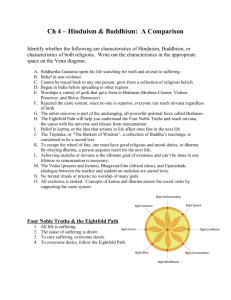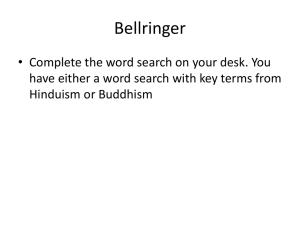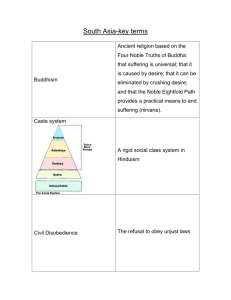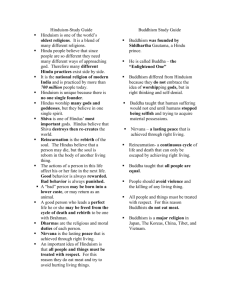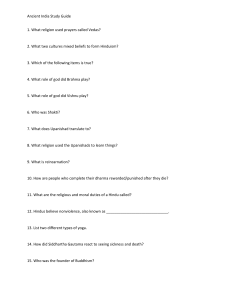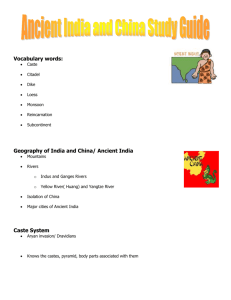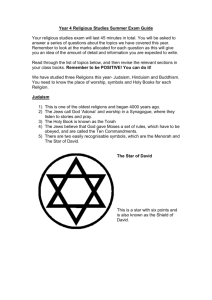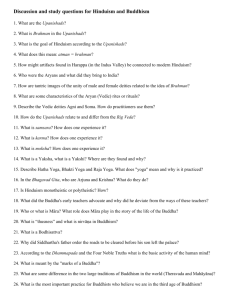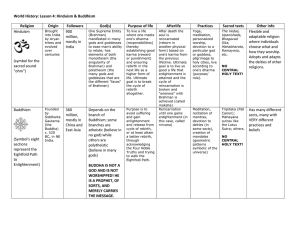Hinduism, Buddhism, Mauryan, Gupta Powerpoint
advertisement
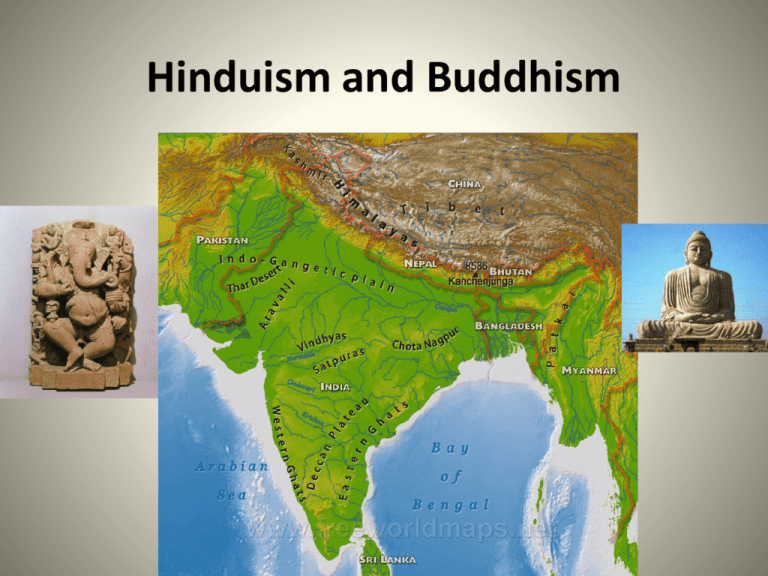
Hinduism and Buddhism Hinduism - No single God “Brahman is sometimes referred to as the Divine Ground of all matter, energy, time, space, being, and everything in and beyond this universe. “ - There is a supreme essence, a universal “being” - This “power” or “force” is called “Brahman” Brahman Analogy Hinduism • Because Brahman is the source of everything, EVERYTHING and EVERYONE is a part of Brahman • Brahman takes on different forms (like specific Gods or Goddesses) in order to meet the specific needs of that specific person) 3 forms of Brahman Brahma Vishnu Ganesha God of Creation Preserver of the Universe Remover of Obstacles “can place or remove obstacles in your life” Shiva Most powerful God “The Supreme Being” “No matter the form it is still Brahman!” The idea that all things (and Gods) are one and the same is called monism. To many Hindus, the world is an illusion and it takes many lives to learn this. Therefore, Hindus believe in reincarnation. http://www.youtube.com/watch?v=WnEYHQ9 dscY&feature=related Death Birth Rebirth This cycle repeats itself until nirvana is reached. How does one reach nirvana? With each new life, Hindus hope to reborn into a higher form (from animal to human) OR caste (from laborer to merchant). The choices people make in this life (and how well they fulfill their duties) determine whether they move UP or DOWN Kharma is the good or bad force created by your actions Because of this way of thinking, Hindus believe that people have earned their current position in life as a sort of reward or punishment for their choices. Hindus worship In temples • What are you thoughts on this? • If do you think this does for people in the “undesirable” class? • Good things / Bad things about it? Buddhism - Buddhism is born OUT OF Hinduism - Siddhartha Gautama was was born a Hindu prince, but was very saddened when discovered how the lowest caste systems lived. Slumdog Millionaire - Gautama went on a journey to discover the meaning to life and why things “are how they are” - He had a “Great Enlightenment” where he realized that all suffering is caused by desires. - He then became “the Buddha.” Four Noble Truths • 1.) Everyone Suffers • 2) Desire results in suffering (you suffer because there are things you want that do not or cannot have) • 3.) If you give up desires, you stop suffering. • 4.) To do this, follow the Eightfold Path The Eightfold Path outlines how to live and behave properly • Buddha is NOT a god, but is a guide for how to act morally, peacefully, and responsibly • Buddhism has NO gods • Buddhist believe in karma (good/evil actions will find their way back to you) and nirvana (the final state you reach once all desires have ended and suffering has stopped, you are at peace with everything) Caste System? •YES in Hinduism •NO in Buddhism Buddhist worship in temples. What role did Buddhism play in uniting India? How did India become unified? • King Chandragupta began to conquer Northern India • Created a strong, central gov’t • Empire fell to grandson – Ashoka • Decided to give up violence • Wanted people to follow Buddhist ways Gupta Empire The “Golden Age” 320-550 CE • Mauryan Empire fell – 500 years of being in smaller kingdoms • 320 CE – united under Gupta • Gave local governments independence • Lasted 230 years Many great achievements…..
